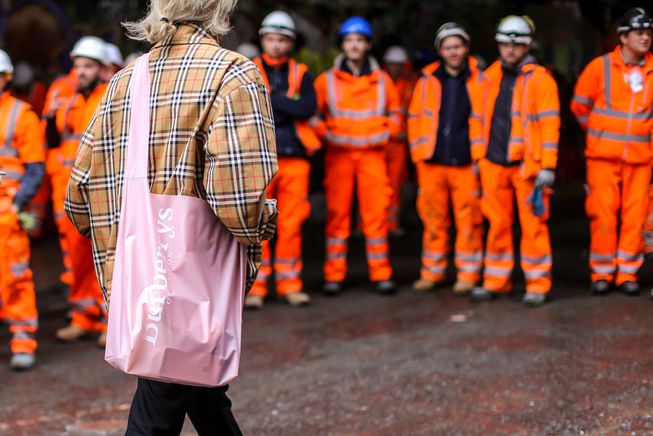Burberry; forgive and forget?
In recent months, consumers have been on a rollercoaster of emotions with Burberry. In July this year, a BBC report emerged stating that the luxury brand destroyed unsold merchandise worth millions, and as expected, shoppers were appalled. In its annual report the British brand stated they had destroyed unsold merchandise worth up £28.6 million, more than a third of those items were perfumes but also included clothes, bags and accessories. When I heard the report I was saddened but not surprised, having worked in the fashion industry I knew this was regular practice with many high-end designer brands. They claim it’s to stop the designs being ‘ripped off’ and devaluing the brands reputation.
The social media backlash over this information was huge, everyone was talking about it, from eco-warriors to fashionistas, and we were all angered by this disregard for sustainability. Burberry must have had so many complaints over the next two months because on the 6th September in a press release, the brand announced, “it will stop the practice of destroying unsaleable products, with immediate effect”. They also announced that they would be dropping fur from all future collections. This was great news and it shows us how powerful our voices can be when we speak up against unethical practices! However, it does raise the question; when a brand makes one or two positive changes, should we forgive them and continue/start to support them? I couldn’t help but wonder; should we always forgive and forget?
I did a bit of digging into Burberry to find out what else they were up to; I used the ‘Good on You’ app FYI. I found that they had a rating of “It’s a start” from the app which shows they are doing some things right but have a way to go before you could class them as an ethical company. I found out that they have adopted the Ethical Trading Initiative Code of Conduct, which is an internationally recognised code of labour practice and basically means they are guaranteeing a good level of working conditions and policies. However, we are still unclear if they are paying a living wage to the garment workers and others involved in the manufacturing process, more transparency on this would be great! Burberry has also committed to eliminating all hazardous chemicals in their production and materials by 2020 and new water reduction initiatives.
Don’t go giving them a green medal just yet, Burberry is far from an environmentally sound company. They are still not using eco-friendly materials (most likely to uphold their ‘luxury’ status), and still use leather, shearling, cashmere and snakeskin in their collections. As a vegan this means I don’t buy from Burberry as they’re clearly not catering for vegans or have the same ethics that I do. Interestingly, the brand highlighted that the energy generated from burning the products was captured – making it “environmentally friendly”, that’s got to anger most of us, right?
At dinner with my family recently, my brother said “I hope people don’t start buying from Burberry now just because they fixed two things” (or something along those lines) It raised an interesting debate over whether you should support a brand even though they still have several practices that you might not agree with. For me, I try and stick to smaller, more ethical brands, as it ties in with my beliefs in sustainable, ethical fashion and the importance of not mass-producing stuff. For some, however, I could see why this may motivate them to now support Burberry as a sudden influx in new customers could spur the brand on to making even more changes. It could also inspire other luxury brands to reconsider their practices, in the hopes of avoiding Burberry’s very public humiliation. This in itself would not be a bad thing, but we do want to avoid big powerful brands jumping on the ‘sustainable bandwagon’ and greenwashing people. If these brands want to make genuine, lasting changes to improve their way of working, then I fully support it, but if they are just pandering to media backlash and don’t have honourable intentions of change then I do worry that these may be temporary fixes and not long-term solutions to a wider problem.
It is still good news that Burberry will stop destroying perfectly good clothes and I’m even happier that they are ditching fur from their collections. I also read that the British Fashion Council did a ring-round with all the designers walking in London Fashion Week and it turns out that it will be completely fur-free for the first time in history! We should celebrate these changes but not lose sight of the fact that the fashion industry is still the second most polluting industry in the world, hundreds of thousands of animals are killed every year for their skin and garment workers across the world are being mistreated and underpaid. This fashion blogger is forgiving, but not yet forgetting.
Sources



